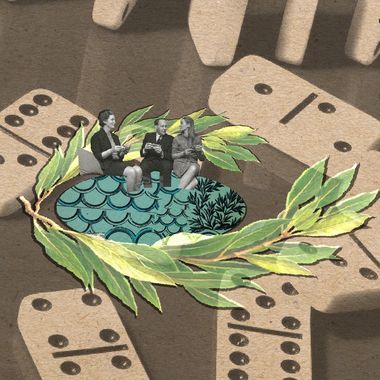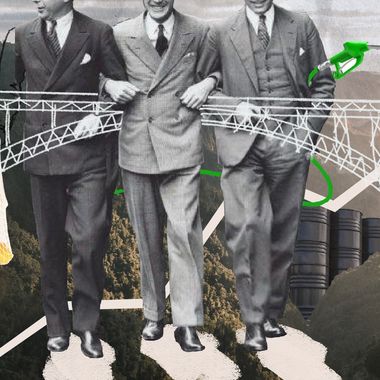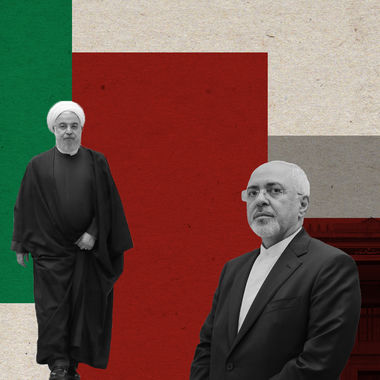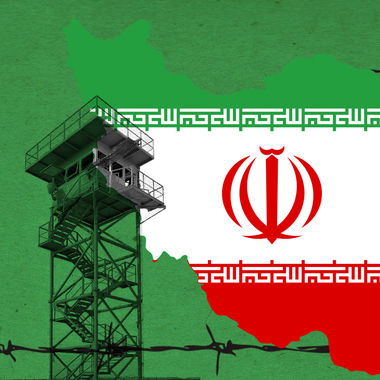Thu Jan 14 2021 · 10 min read
Implications of the 2020 Artsakh War on Regional Countries

By Hovsep Kanadyan
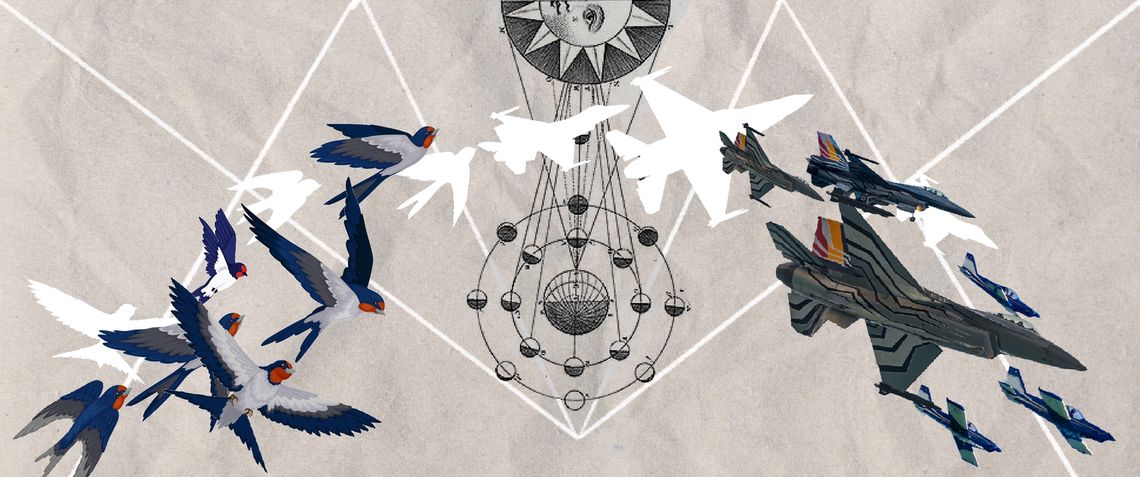
Illustration by Armine Shahbazyan.
The 2020 Artsakh War, which lasted 44 days, has changed the geopolitical picture in the South Caucasus. The war has impacted all the countries in the region - Armenia, Azerbaijan, Georgia, Iran, Russia and Turkey - in one way or another, and its repercussions will continue to shape them into the future. Certainly, there are winners and losers out of this war, but there are also countries that both won and lost.
Turkey
The number one winner of the war is Turkey (though not everyone agrees). Turkey’s gains far outweigh its costs in participating in the war. Turkey’s national currency, the lira, did register some devaluation (though the war was not the sole reason for it), but in the longer term that might actually boost its economy by making exports cheaper. Next, the war did somewhat negatively impact Turkey’s relations with some western countries (they openly criticized Turkey’s direct involvement in the war, especially for its deployment of Syrian mercenaries), but Erdogan has brushed it off as its position in NATO did not come under serious question. Erdogan’s Turkey is a regional power seeking to increase its standing in the global arena. Erdogan understands that there will be bumps along the way on this geopolitical journey, and he has already weighed the costs against expected gains. By investing a little and without losing much, Turkey has ensured its military presence in Azerbaijan and hence in the South Caucasus. Importantly, Ankara was not able to reach its stretch goal, that is, deploying its soldiers as peacekeepers together with the Russians or even keeping the Russians out. Nevertheless, Turkish and Russian soldiers will jointly monitor ceasefire violations, and Turkey will spare no efforts to prolong its stay as much as possible. Regardless of the status of their presence, the seemingly-permanent deployment of Turkish troops in Azerbaijan is a significant and historic gain since it marks the first time Turkey has succeeded in ensuring a military presence in the former Soviet space (which also counts the Turkic Central Asian countries that play a role in pan-Turkic aspirations).
Russia
For Russia, the South Caucasus is considered part of its “Near Abroad,” its backyard over which it exerts a privileged sphere of influence, and where it has abundant vested interests. Russia has become unnerved in the past when other players have sought to encroach into the territory of the former Soviet Union (ex. the Baltic countries, Georgia and Ukraine). Putin’s Russia cannot be happy with Turkey’s new bold presence in the region, especially considering its geopolitical ambitions. In a sense, Russia is a winner in this war since it has ensured its foothold in Artsakh (at least for the next five years). For Russia, this is crucially important as it has attempted to station its own peacekeepers in Artsakh since the First Karabakh War (1992-1994). It has now succeeded, but only at the price of an unprecedented Turkish (and hence, NATO) military presence in the post-Soviet space. Russia lost its privileged role in the Nagorno-Karabakh conflict, and from now on has to take Turkey’s interests into account more seriously.
This situation is understandable, taking into consideration the complex relations between these two regional powers. Russian-Turkish ties are like a coin with two sides: on one side is (opportunistic) cooperation and on the other is confrontation (through proxies). They have a close trade partnership (e.g., arms deals, construction, energy, etc.) and coordinate their efforts in the Syrian crisis. Simultaneously, however, they are in a tense, tacit, sometimes open confrontation, for instance, in the same Syrian crisis, the civil war in Libya or the Nagorno-Karabakh conflict. Meanwhile, by balancing their policies over Nagorno-Karabakh, Moscow and Ankara attempt to show that their confrontations over other regional conflicts have not crippled their relationship. Nevertheless, Putin and Erdogan have not succeeded to outstrip a zero-sum game over Karabakh: although Russia won by stationing its armed forces in the region, Turkey has done the same, at the expense of Russia’s interests.
The presence of several thousand terrorist fighters in Karabakh (sent by Turkey) is yet another concern for Moscow, given the history of separatists in Chechnya.
Azerbaijan
Although Azerbaijan had a clear victory in the fighting, it is now left in a rather complex and problematic situation. To begin with, the military presence of both Turkey and Russia on its territory is a loss in terms of national sovereignty, even despite Turkey and Azerbaijan’s strategic military-political alliance. Russia’s presence is more problematic since it is not a clear ally, and Baku clearly understands that Russia’s influence can grow. It is no accident that there is already some criticism by both Azerbaijan’s ruling and opposition parliamentarians toward the mandate and some of the moves by Russian peacekeeping forces, accusing them of protecting the secessionist government of Artsakh. Furthermore, the conflict has not been settled, despite Aliyev’s assurances that the negotiations are over. The November 10 ceasefire is not a long-term fix and Baku’s power doesn’t extend to the entire territory of the Soviet-era Nagorno Karabakh Autonomous Oblast (NKAO). What we have is a delicate and unfinished peace. According to Armenian political scientist Alexander Iskandaryan, the Karabakh conflict stands where it stood.
Iran
Iran maintains friendly ties with both Azerbaijan and Armenia. However, it has many problematic issues with Baku but not with Yerevan. There is no final decision yet on divvying up the Caspian Sea’s resources among its littoral states, including Azerbaijan and Iran. Next, Baku has close military-political cooperation with Israel - Tehran’s sworn enemy. This cooperation has negatively impacted Baku-Tehran affairs. During recent years, there were instances when Iran accused Azerbaijan of helping Israeli intelligence in the assassination of an Iranian nuclear scientist and providing its territory to Israel for surveillance purposes. It has also criticized Azerbaijan for Israeli missile procurement. Now, Azerbaijan has won the war with the help of Israeli weapons, including drones that are changing the nature of warfare. The borderline between Azerbaijan and Iran has increased, which has increased Tehran’s concerns connected to the potential expansion of Israeli intelligence.
Turkey and Russia are Iran’s historical rivals in this region. For centuries, these three powers have competed in the region. Now two of them - Russia and Turkey - have increased their military presence on Iran’s doorstep. Furthermore, Turkey has deployed Sunni terrorist fighters (who have battled against Shia groups in Syria) to help Azerbaijan. Iran is the largest Shia nation, while Azerbaijan is also culturally majority Shia. Many of these mercenaries are still in areas close to the Iranian border and some have been encouraged to settle there, presenting a clear national security challenge for Iran. It is no accident that Iran concentrated troops along its border with Azerbaijan during the war. Ankara and Tehran are in opposing camps in Syria, waging a de facto proxy war against each other there.
Most significantly, Azerbaijani nationalistic voices pose a challenge for Iran’s territorial integrity. It is no secret that there are some 15-20 million ethnic Azerbaijanis in Iran (with approximately 9 million concentrated in its northern provinces). In Azerbaijan, extreme nationalists consider these Iranian regions (specifically the Iranian provinces of West Azerbaijan, East Azerbaijan and Ardabil) as a part of “Greater Azerbaijan” and call it “South Azerbaijan.” There is even a movement that advocates for the “reunification” of “South Azerbaijan'' with the Republic of Azerbaijan, an end that can only be achieved through conflict and awkwardly goes against Azerbaijan’s rhetoric of territorial integrity with respect to Nagorno-Karabakh. Meanwhile, several hundred ethnic Azerbaijanis in these regions of Iran took to the streets at the beginning of the war, to express their solidarity with Azerbaijan with ethnocentric slogans. Though Azerbaijan’s leadership thusfar has not officially encouraged these nationalistic sentiments, after the recent victory, it may feel more confident in implicitly supporting ethno-nationalist claims both in Azerbaijan and Iranian Azerbaijan. Turkey’s Erdogan already initiated such a move during Azerbaijan’s military parade in Baku in December 2020 that instigated Iran’s anger. This is a real risk for Tehran in the future too.
Last but not least, according to the November 10 ceasefire agreement, Azerbaijanis are looking to use Armenia’s territory to reach the exclave of Nakhichevan, reducing Iran’s importance as the current primary route.
In some ways, the new status quo is also beneficial for Iran. Before the 2020 Artsakh War, Iran bordered the Republic of Artsakh. The previous status quo of “no war, no peace” and the unrecognized situation was fraught with ambiguity. Now there is rather more certainty at least regarding the territory immediately bordering Iran. Now that Azerbaijan controls that border area, the risk is reduced that future fighting will impact Iran. Suffice it to say that, during the recent war, more than a hundred missiles fell on Iran’s territory.
Georgia
As regards Georgia, which has sizable ethnic Armenian and Azerbaijani communities, it is perhaps the least impacted country in the region. At this point, it is hard to identify direct benefits for Georgia arising from the war. In contrast, Tbilisi cannot be happy with the fact that Russia has increased its military presence in the region. It is no surprise that 40 former Georgian high-ranking officials, as well as diplomats and experts, appealed to the U.S. Secretary of State to place American soldiers in Georgia. Furthermore, the last point of the trilateral ceasefire agreement says that “all economic and transport links in the region shall be unblocked.” Accordingly, Georgia could eventually lose its privileged role as a transportation corridor. If this point is actually realized (a working group will be established to discuss it further), Armenians may no longer need to pass through Georgia to reach Turkey and Russia. Moreover, Armenians may go to Russia via Azerbaijan as well. Azerbaijanis, in turn, may use Armenia’s territory to get to Turkey and Nakhichevan. Therefore, Georgia’s transit benefits may decrease.
Russia de jure recognized the independence of both Abkhazia and South Ossetia in 2008. Understandably, this is explained by Moscow's geopolitical assertions and interests. By disputing Georgia’s territorial integrity, Russia inserts a major impediment to its future accession to NATO. On the other hand, Russia has always, (see this recent interview) supported the principle of Azerbaijan’s territorial integrity. Double standards are everywhere in realpolitik. The fact is that Russia will hardly change its position on Georgia's breakaway regions. As a matter of fact, on January 2, President Putin appointed a special representative of the head of state for the delimitation and demarcation of the state border of Russia with CIS countries, as well as with Georgia, Abkhazia and South Ossetia. In Tbilisi, this move was received as a provocation and aggression, and a breach of international norms.
Armenia
Finally, the number one loser of the war is Armenia, since it suffered an apparent and systemic defeat. The Armenian side (including Artsakh) has no gains; instead, it is in a deep socio-political crisis coupled with economic hardships connected to the war, refugees, ruined infrastructure and housing in Artsakh, not to mention the aggravated COVID-19 situation. Because of the war, other than territory handover and human loss, the total length of the border between Armenians and Azerbaijanis - both interstate borderlines between Armenia and Azerbaijan and the contact line between the Artsakh Republic and Azerbaijan - has increased considerably, which is a serious challenge for an already-overstretched military. It is no surprise that these difficulties forced Armenia’s government to ask Russians to patrol some parts of the country’s southeast border with Azerbaijan in the Syunik region.
As a result, Russian influence on Armenia has increased and can continue increasing. Thus, almost all national security issues are connected to and often provided by Russia. Next, there are some rumors that Russian passports will be issued to Artsakh residents in the near future, and this has not been ruled out by the Secretary of Artsakh’s Security Council, Vitali Balasanyan. The situation is more complicated by the fact that the conflicting parties have different interpretations of the ambiguous November 10 agreement, particularly the fourth point: Baku is convinced that the fourth point implies that Armenian troops should leave the entire territory of Artsakh, while Yerevan believes this applies only to the regions surrounding the former NKAO and the parts inside it that Azerbaijanis had already occupied. To this end, Azerbaijan escalated the situation in the Hadrut region (in December 2020) claiming that the Armenian army must be withdrawn from the NKAO as well. Vladimir Putin clarified in his annual news conference that “we agreed that the sides should stop at the positions they were holding at the time of signing the trilateral statement,” meaning that Armenian armed forces can stay in those parts of the NKAO where they stood on November 9.
Additionally, there is some unsubstantiated information that Baku is hindering the entrance of Armenian conscripts to Artsakh to continue their military service. Baku’s success in this aspiration depends greatly on the Russian stance and clarifications. It is because the November 10 agreement contains many nuances and uncertainties, which are subject to further clarification, that Russia will play a unique role as an arbiter. Moreover, Armenia has been weakened, its army demoralized, and Azerbaijan tries to use these realities to get as much as possible regarding the many uncertain points of the agreement.
The war has ended, but the conflict has not. The dynamics of the Nagorno-Karabakh conflict will further shape the regional order with new implications. The U.S. and France have seen their influence diminished as a result of the war but they still have the potential to re-engage in the format of the OSCE Minsk Group, especially as the new Biden administration provides a reset opportunity. The meeting on January 11 between Putin, Pashinyan and Aliyev could be viewed as an attempt to pre-empt such re-engagement by the U.S. and France.
also read
Azerbaijan’s Breach of the Peace and the Indifference of World Powers
By Zaven Sargsian
Azerbaijan’s premeditated war against Karabakh was a blow to the prevailing world order, particularly the principle that international disputes be resolved through peaceful means. The world powers must condemn Azerbaijan’s violation and mitigate the damage it has caused.
The Turkey-Georgia-Azerbaijan Regional Triangle
By Anna Barseghyan
Turkey, Georgia and Azerbaijan institutionalized their triangle long before the 2020 Artsakh War and have established deep roots of cooperation.
Nagorno-Karabakh and Iranian Public and Foreign Policy
By Hamed Kazemzadeh
The 2020 Karabakh War has had regional implications for neighboring countries, specifically on Iranian public and foreign policy. Hamed Kazemzadeh looks at the internal and external dimensions of Iran’s stance.
Iran’s Response Following Azerbaijan's Offensive in Artsakh
By Anna Gevorgyan
While Iran's response to the current escalation is neutral and balanced, there are concerns about Azerbaijan's desire for a military solution, Turkey's involvement and the arrival of terrorists in the region.
Consistent Passive Aggression and Realpolitik
By James Derounian
Throughout the 2020 Artsakh War, the UK Government was mostly impotent, writes James Derounian. It instead has and continues to provide blind, sometimes tacit, support for Turkey directly and its ally Azerbaijan indirectly.
The 2020 Artsakh War: What the World Lacks Now Is Leadership
By Daniel Tahmazyan
The isolationism of former global powers in a fractured world has left vulnerable countries at the mercy of power-hungry regional players.
Belarus Was Sanctioned, Why Not Azerbaijan?
By Harout Manougian
Western countries imposed sanctions on Belarus’ Aleksandr Lukashenko for cracking down on democracy and attacking civilians. Ilham Aliyev has actually been more brutal but has not been penalized.
also see
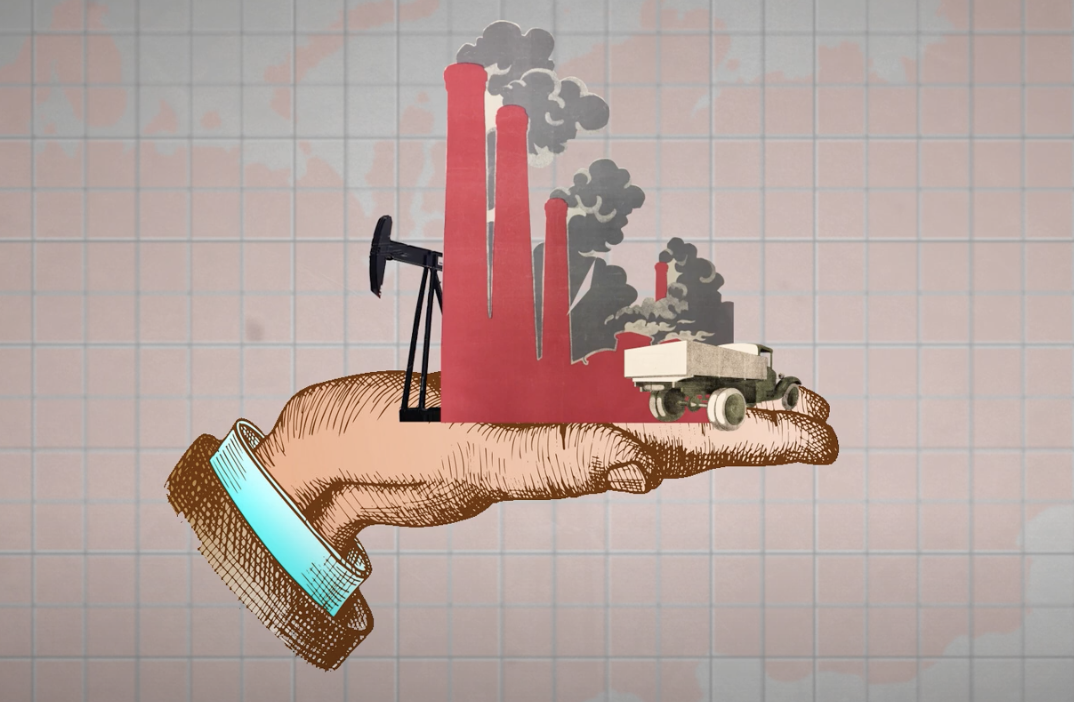
Understanding the Region: The Caucasus and Beyond
Understanding the Region: The Caucasus and Beyond is a series of special reports that provides credible, fact-based information and awareness about a wide range of regional topics and issues impacting the South Caucasus. The purpose of this series is to provide clarity and understanding of regional dynamics and interrelations.
- What is the Collective Security Treaty Organization?
- What is the Eurasian Economic Union?
- The State of Democracy in the South Caucasus
- Energy in the South Caucasus
- Tourism and COVID-19 in the South Caucasus
- COVID-19 Response in the South Caucasus
- Agriculture in the South Caucasus

